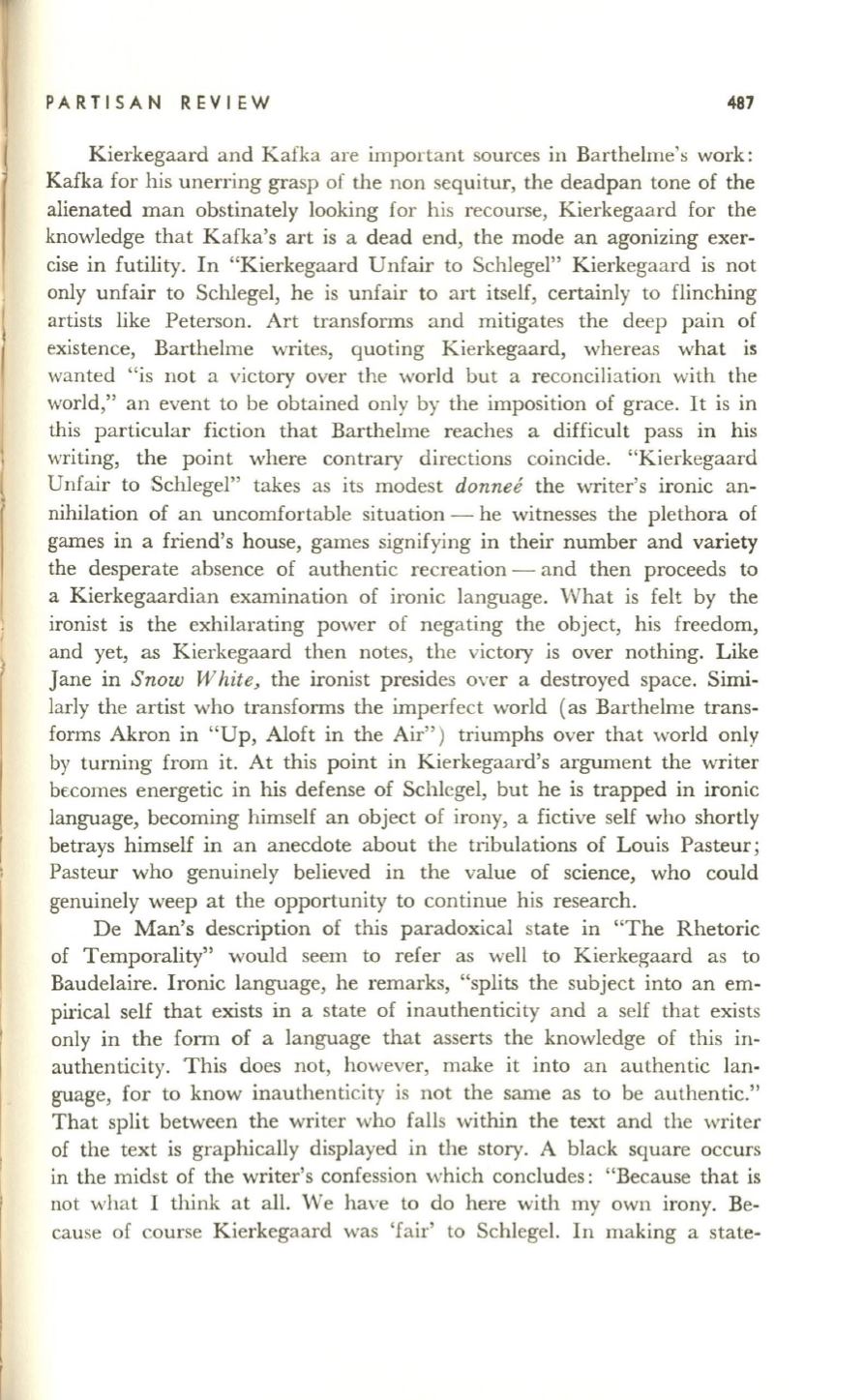
PARTISAN REVIEW
487
Kierkegaard and Kafka are important sources in Barthelme's work:
Kafka for his unerring grasp of the non sequitur, the deadpan tone of the
alienated man obstinately looking for his recourse, Kierkegaard for the
knowledge that Kafka's art is a dead end, the mode an agonizing exer–
cise in futility. In "Kierkegaard Unfair to Schlegel" Kierkegaard is not
only unfair to Schlegel, he is unfair to art itself, certainly to flinching
artists like Peterson. Art transforms and mitigates the deep pain of
existence, Barthelme writes, quoting Kierkegaard, whereas what is
wanted " is not a victory over the world but a reconcili ation with the
world," an event to be obtained only by the imposition of grace. It is in
this particular fiction that Barthelme reaches a difficult pass in his
writing, the point where contrary directions coincide. "Kierkegaard
Unfair to Schlegel" takes as its modest
donnee
the writer's ironic an–
nihilation of an uncomfortable situation - he witnesses the plethora of
games in a friend's house, games signifying in their number and variety
the desperate absence of authentic recreation - and then proceeds to
a Kierkegaardian examination of ironic language. What is felt by the
ironist is the exhilarating power of nega ting the object, his freedom,
and yet, as Kierkegaard then notes, the victory is over nothing. Like
Jane in
Snow White,
the ironist presides over a destroyed space. Simi–
larly the artist who transforms the imperfect world (as Barthelme trans–
forms Akron in "Up, Aloft in the Air" ) triumphs over that world only
by turning from it. At this point in Kierkegaard's argument the writer
becomes energetic in his defense of Schlegel, but he is trapped in ironic
language, becoming himself an object of irony, a fictive self who shortly
betrays himself in an anecdote about the tribulations of Louis Pasteur;
Pasteur who genuinely believed in the value of science, who could
genuinely weep at the opportunity to continue his research.
De Man's description of this paradoxical state in "The Rhetoric
of Temporality" would seem to refer as well to Kierkegaard as to
Baudelaire. Ironic language, he remarks, "splits the subject into an em–
pirical self that exists in a state of inauthenticity and a self that exists
only in the form of a language that asserts the knowledge of this in–
authenticity. This does not, however, make it into an authentic lan–
guage, for to know inauthenticity is not the same as to be authentic."
That split between the writer who falls within the text and the writer
of the text is graphically displayed in the story. A black square occurs
in the midst of the writer's confession which concludes: "Because that is
not what I think at all. We have to do here with my own irony. Be–
cause of course Kierkegaarcl was 'fair' to Schlegel. In making a state-


